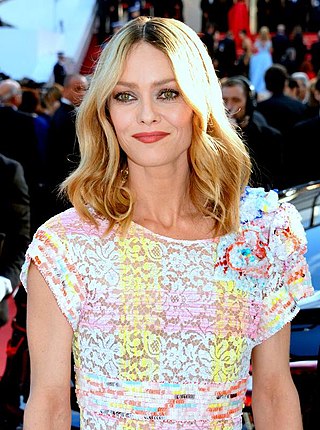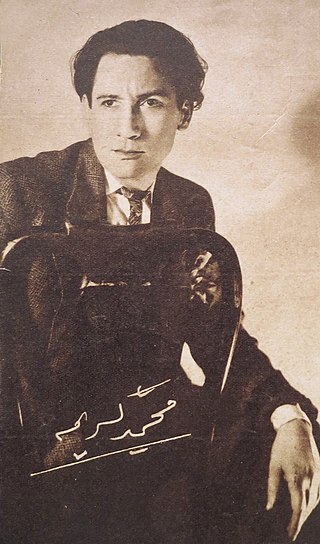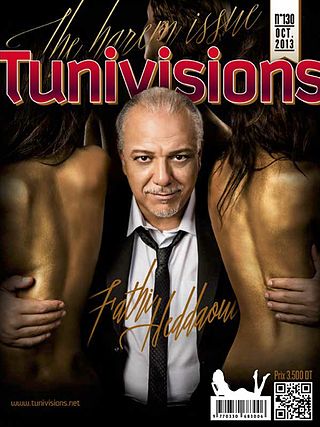Related Research Articles

The Cannes Film Festival, until 2003 called the International Film Festival, is an annual film festival held in Cannes, France, which previews new films of all genres, including documentaries, from all around the world. Founded in 1946, the invitation-only festival is held annually at the Palais des Festivals et des Congrès. The festival was formally accredited by the FIAPF in 1951.

Vanessa Chantal Paradis is a French singer, model and actress. Paradis became a star at the age of 14 with the international success of her single "Joe le taxi" (1987). At age 18, she was awarded France's highest honours as both a singer and an actress with the Prix Romy Schneider and the César Award for Most Promising Actress for Jean-Claude Brisseau's Noce Blanche, as well as the Victoires de la Musique for Best Female Singer for her album Variations sur le même t'aime. Her most notable films also include Élisa (1995) alongside Gérard Depardieu, Witch Way Love (1997) opposite Jean Reno, Une chance sur deux (1998) co-starring with Jean-Paul Belmondo and Alain Delon, Girl on the Bridge (1999), Heartbreaker (2010) and Café de Flore (2011). Her tribute to Jeanne Moreau at the 1995 Cannes Film Festival during which they sang in duet "Le Tourbillon" became notable in French popular culture. In 2022, she was nominated for the Molière Award for Best Actress for her performance in the play Maman.

The Panafrican Film and Television Festival of Ouagadougou is a film festival in Burkina Faso, held biennially in Ouagadougou, where the organization is based. It accepts for competition only films by African filmmakers and chiefly produced in Africa. FESPACO is scheduled in March every second year, two weeks after the last Saturday of February. Its opening night is held in the Stade du 4-Août, the national stadium.

The culture of Morocco is a blend of Arab, Berber, Andalusi cultures, with Mediterranean, Hebraic and African influences. It represents and is shaped by a convergence of influences throughout history. This sphere may include, among others, the fields of personal or collective behaviors, language, customs, knowledge, beliefs, arts, legislation, gastronomy, music, poetry, architecture, etc. While Morocco started to be stably predominantly Sunni Muslim starting from 9th–10th century AD, during the Almoravid period, a very significant Andalusi culture was imported, contributing to the shaping of Moroccan culture. Another major influx of Andalusi culture was brought by Andalusis with them following their expulsion from Al-Andalus to North Africa after the Reconquista. In antiquity, starting from the second century A.D and up to the seventh, a rural Donatist Christianity was present, along an urban still-in-the-making Roman Catholicism. All of the cultural super strata tend to rely on a multi-millennial aboriginal Berber substratum still present and dating back to prehistoric times.

Mohammed Karim (1896–1972) was an Egyptian film director, writer, and producer. Karim brought Faten Hamama to fame in the movie Yawm Said. His 1946 film Dunia was entered into the 1946 Cannes Film Festival.

The history of the cinema of Morocco dates back to "The Moroccan Goatherd" by Louis Lumière in 1897. During the French protectorate, films were produced and directed by French filmmakers, and in 1952, Orson Welles directed his Othello in the historic city of Essaouira. Since independence in 1956, Moroccan film directors developed the national film industry. Emergence in the 1970s met with growing international success.

Fethi Haddaoui is a Tunisian actor, director, writer and producer.

Mohamed Mbougar Sarr is a Senegalese writer. Raised in Diourbel, Senegal and later studying in France, Sarr is the author of four novels as well as a number of award-winning short stories. He won the 2021 Prix Goncourt for his novel La plus secrète mémoire des hommes, becoming the first Sub-Saharan African to do so.

Mohamed Bayo is a professional footballer who plays as a forward for Ligue 1 club Le Havre, on loan from Lille. Born in France, he plays for the Guinea national team.

Mohamed Ben Attia, born January 5, 1976, in Tunis, is a Tunisian director and screenwriter.

Naima Lamcharki is a Moroccan actress.
Younes Reggab is a Moroccan filmmaker and screenwriter. He is the son of filmmaker Mohamed Reggab. His films have been screened at numerous Moroccan film festivals and he has been a part of the juries of a number of them.
The Barber of the Poor District is a 1982 Moroccan film directed by Mohamed Reggab and adapted from a play of the same title by Youssef Fadel. It was the director's sole feature film, and became a Moroccan cult classic. It was screened at the first edition of the National Film Festival in Rabat, where it received as a special mention and the 10th edition of the National Film Festival as part of a series on Moroccan classics. Internationally, the film was screened at Three Continents Festival in 1983, and the Berlin International Film Festival in 1982. The debts incurred for the production of his sole feature film led to Reggab being imprisoned.
In Search of My Wife's Husband is a 1993 Moroccan comedy film directed by Mohamed Abderrahman Tazi and written by Farida Belyazid. It was screened at multiple national and international film festivals., where it won a number of prizes. It is one of Morocco's most popular domestic films, reaching approximately a million spectators. Lalla Hobby is the film's sequel.
Mohamed Zineddaine is a Moroccan-Italian journalist, photographer, filmmaker, screenwriter and producer.

Mohamed Chrif Tribak is a Moroccan filmmaker and screenwriter.

Autumn of Apple Trees is a 2020 Moroccan film directed by Mohamed Mouftakir. The film opened the National Film Festival in Tangier and was screened at the Cairo International Film Festival.
Deux femmes sur la route is a 2007 drama film directed by Farida Bourquia.
Terminus des anges is a 2010 Moroccan anthology film directed by Mohamed Mouftakir, Hicham Lasri and Narjiss Nejjar, released in 2010. The film is a combination of three short films, each directed by a different director. It premiered at the National Film Festival of Tangier. The film tackles the subject of AIDS.
ZERO is a Moroccan film written and directed by Nour-Eddine Lakhmari and produced by Timlif Productions, released on December 19, 2012, in Morocco. The film was a box office success in Morocco. It was screened at a number of international film festivals, and took away the Grand Prize at the Tangier National Film Festival, among other prizes.
References
- ↑ "Cinestars: «Zaynab, la rose d'Aghmat», votre film marocain du dimanche soir". 2M (in French). Retrieved 2021-11-28.
- ↑ "filmnat14". ccm.ma. Retrieved 2021-11-28.
- ↑ "Festival national du film de Tanger: La légendaire Zaynab Ennafzaouia ressuscitée". Aujourd'hui le Maroc (in French). Retrieved 2021-11-28.